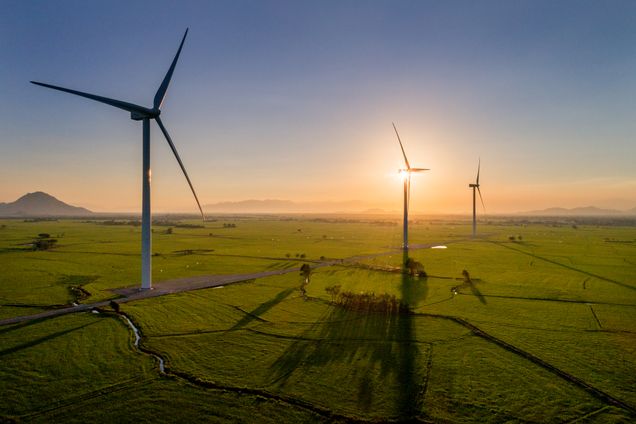Green Opening-up and South-South Cooperation

The systemic impacts of climate change and environmental degradation are evolving profoundly, highlighting the vulnerability of public systems and governance capabilities in developing countries under multidimensional challenges.
From a regional perspective, developing countries in Southeast Asia, Africa, Latin America and other regions are facing the dual challenges of development and climate change. At the same time, they are also experiencing economic transformation and post-pandemic economic recoveries, with an emphasis on infrastructure construction and industrial development.
South-South cooperation has long played a vital role in responding to global challenges. As a major developing country, China has been a staunch supporter and active participant in South-South cooperation, advocating for the sharing of development experiences and the promotion of economic and trade development among developing countries. For decades, China has actively facilitated the exchange of knowledge, experience, policies, technologies and resources among Southern countries.
In a new special policy study by the China Council for International Cooperation on the Environment and Development (CCICED), a team of Chinese and international policy experts and researchers review the development of South-South cooperation in China and the global context, as well as the interaction between South-South cooperation and North-South cooperation. The study also explores the necessity of China to promote green development and South-South cooperation and the current management basis, and puts forward countermeasures and suggestions for enhancing China’s green support and South-South cooperation.
The study also assesses the main challenges and opportunities of China-Association of Southeast Asian Nations (ASEAN) and China-Africa green South-South cooperation, especially in the development of renewable energy, green industrial parks, key minerals and environmentally friendly product manufacturing.
Consisting of senior Chinese and international officials and experts, and chaired by China’s Vice-Premier, CCICED serves as a high-level advisory body with a mandate to conduct comprehensive, cross-sectoral and multidisciplinary research that integrates the environment, the economy and society. The special policy study is the result of international collaboration with dozens of experts from institutions around the world, including Kevin P. Gallagher and Jiaqi Lu, who served as Special Policy Study Members.
Based on the analysis, the report provides relevant policy recommendations for Chinese policymakers, ASEAN countries and African countries to strengthen the mutual benefit and win-win situation of green development cooperation and climate action.
Policy recommendations:
- Develop a roadmap for promoting green opening-up and South-South cooperation.
- Accelerate and enhance China-ASEAN renewable energy cooperation.
- Unlock the potential of China-Africa renewable energy cooperation.